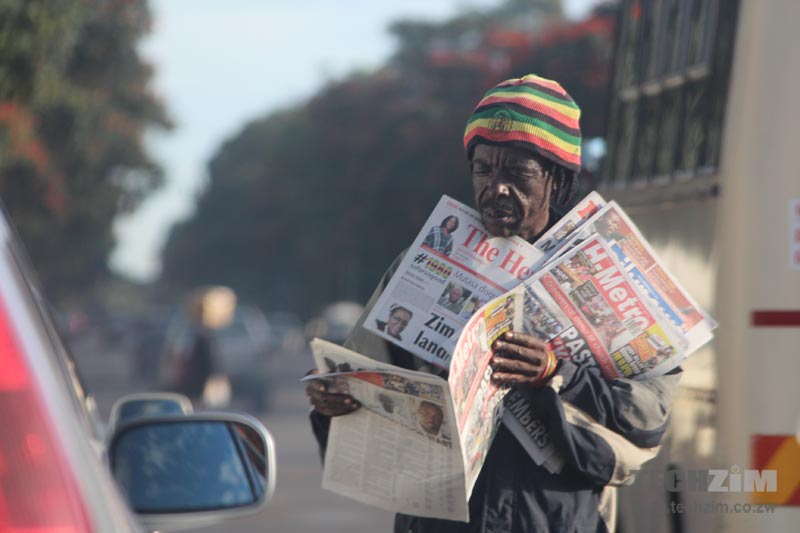President Emmerson Mnangagwa has appointed Trustees for the Zimbabwe Mass Media Trust (ZMMT) that was dissolved and has been dormant since 2000.
A brief history
According to Wikipedia, ZMMT was set up back in 1981 as part of the government’s new media policy, under widespread criticism of the national media, which at the time was inherited from foreign control.
The trust was meant to “serve as a vehicle not just for changing the staff and editorial policy of the papers, but also to oversee the transition in the management and operation of the public print media from white minority control to serving the interests of the broad section of Zimbabwean society.”
A book analyzing Zimbabwean Media explains why the government felt it had to establish ZMMT even though there was a risk that the government would end up compromising on democracy (we know how that story ends):
The Zimbabwe Mass Media Trust was created by the new independent Zimbabwean government in January 1981 as an articulation of its media policy.
The background was a dissatisfaction with the situation in the national press. The two daily newspapers in the country, The Rhodesian Herald in Salisbury and The Bulawayo Chronicle in Bulawayo, were at independence owned by the South African Argus company’s chain of newspapers.
It was obvious to everyone that this was an arrangement that had to change. A major South African media chain which at the same time controlled the major English language newspaper in the apartheid state, even if these papers voiced a cautious form of critique of apartheid, could not continue to control the print media in a country that saw itself as being in the forefront of the struggle against apartheid. And while the two papers under the Smith regime quite often were censored, and attempted to uphold principles of editorial independence, they were nevertheless seen as part of the Rhodesian establishment
The Media in Zimbabwe: The Struggle between State and Civil Society – Helge Rønning
So in 1981, Argus’ 43.2% stock in the newspaper company was bought by the Zimbabwean government and placed under the control of ZMMT for US$5m million (approx). Argus company was renamed to Zimpapers (Zimbabwe Newspapers).
This move presented the first of many policy dilemmas that would become synonymous with the ZANU PF party as they promoted freedom of press without state intervention but were now controlling media houses.
The ZMMT formation also foreshadows factionalism that has become commonplace in the political party as there were divisions as to how ZMMT should exert their influence on media:
On the one hand, it was not in line with ZANU(PF) policies to privatize the press, and there were powerful sectors of the party that wished to nationalize the press.
The Media in Zimbabwe: The Struggle between State and Civil Society – Helge Rønning
In December 2000, ZMMT was dissolved during Jonathan Moyo’s tenure as Minister of Information & Publicity – and has been dormant since.
Latest developments…
Long story short. The historied ZMMT has been revived and a statement by the Ministry of Information says the following individuals were appointed as Trustees:
- Mr Honour P. Mkushi (Chairperson) – an Advocate of the High Court of Zimbabwe, Member of the International Bar Association and Commonwealth Lawyers Association. He is the current Chairman of 10 Boards of private companies in Zimbabwe.
- Mr. Thomas S.G Sithole – current Charman of the Zimpapers Board. He is the first editor of the Chronicle. Thomas also worked for several local and international organisations including the International Olympic Committee in Switzerland.
- Ms. Patience Gawe – Assistant Senior Directing Staff at the Zimbabwe National Defence University. She is a holder of Master’s degrees in Business Administration, Development Studies and Mass Communication
- Ms. Charity Charamba is a retired Police Commissioner. She holds a Masters in International Relations, a BA in Media Studies among other qualifications.
- Mr. Phatisani Nyathi – a veteran educationist, renowned author and former Public Relations Officer for Bulawayo City Council. He holds a Bachelor of Arts Honours Degree.
- Prof. Ngwabi Bhebhe – a historian and the first Vice-Chancellor of the Midlands State University. Previously he served as the Pro-Vice-Chancellor of the University of Zimbabwe.
Revival of this trust may mean one of two opposites: the current government either wants to exert more control over state media through the long arm of ZMMT or the government actually wants to distance itself from direct involvement in media.
State (partially) owned media houses are quite influential in Zimbabwe. Zimpapers for example is no longer just a newspaper company controlling a newspaper in Harare and another in Bulawayo. Both those papers are national now and with the internet reality they are international publications whose voice informs foreign investors and such. The Sunday Mail which is the most read weekly in Zimbabwe is very influential as well. Zimpapers also owns Star FM, one of the more popular radio stations as well as Capitalk FM and a digital broadcasting outfit: ZTN.


What’s your take? Cancel reply